Fernando Meirelles' 2002 film City of God is one of the most highly-acclaimed international films of the past 20 years. With an 8.6/10 rating on IMDb, the film is currently ranked #22 on IMDB's Top 250. The film also boasts a 91% Certified Fresh Rotten Tomatoes rating and a 79/100 Metascore.
Set in the slums of Rio De Janeiro, Brazil, the gritty crime film is loosely based on the real-life events that took place in South America during the 60s, 70s, and 80s. With undying violence all around them, City of God follows Rocket (Alexandre Rodrigues), and Lil Ze (Leandro Firmino), two boys desperate to evade a life of danger.
10 Locations
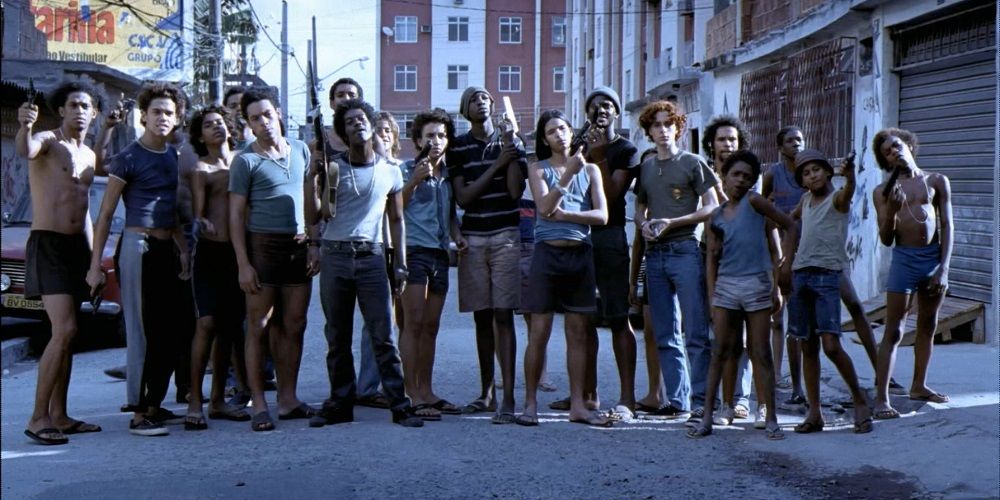
Although the crime film was shot on location in Rio De Janeiro by native Brazilian filmmaker Fernando Meirelles, the director admitted that the actual slums (favelas) of Cuidad de Dues (City of God) were far too perilous to film in. As such, the movie was filmed in neighboring areas, including Cuidad Alta.
At one point, while filming, untrained locals who played the Runts in the film approached screenwriter Braulio Mantovani and asked if they could write a sequel depicting the gangs overtaking the city.
9 Casting
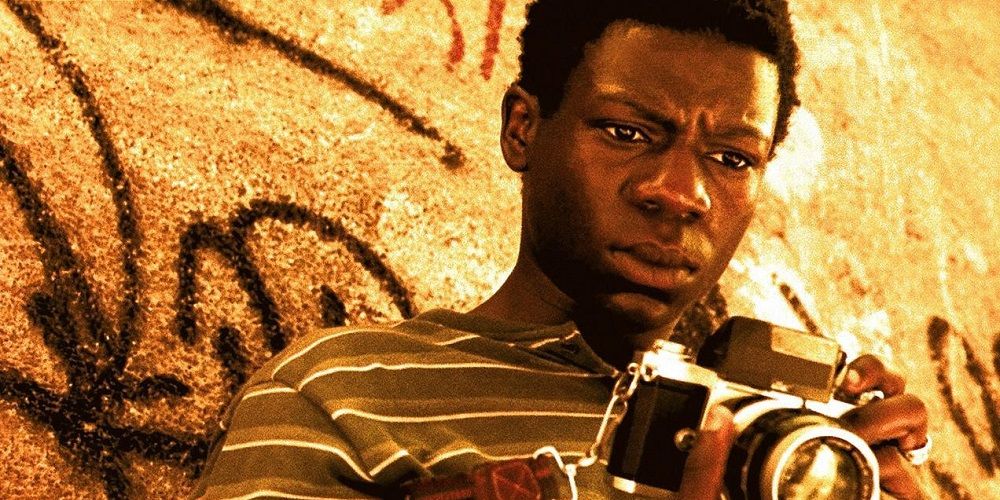
Meirelles was adamant about casting non-actors from the Rio slums to achieve the utmost authenticity in the film, which is based on Paulo Lins' true-crime novel. Nearly all of the main performers were plucked out of their natural environment, including Leandro Firmino, who hailed from the real City of God.
Firmino, who plays Lil Ze in the film, neither intended to audition for the film nor expressed any desire to pursue acting. He only attended the audition to support a friend and was offered one of two leading roles on the spot.
8 Knockout Ned
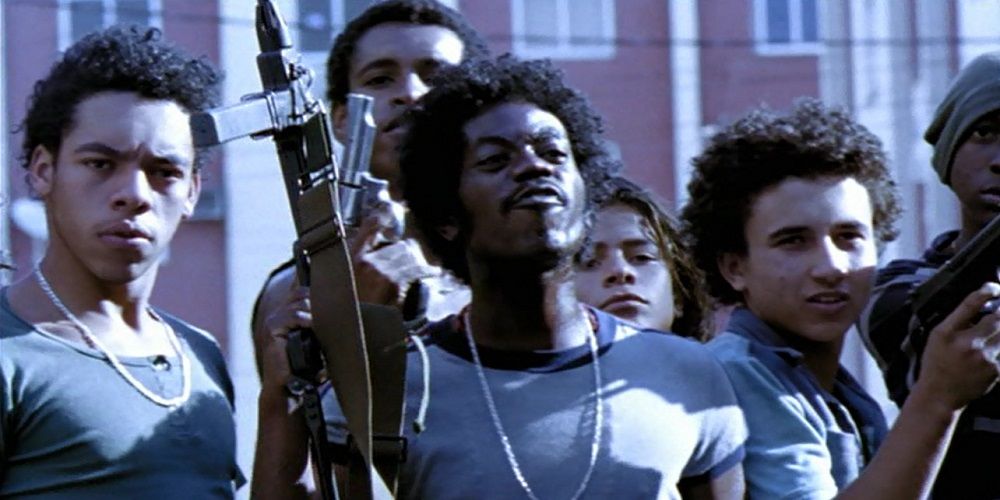
The character of Knockout Ned is played by the famous Brazilian musician, Seu Jorge. The character's name is Mane Galinha in the Brazilian version but was changed to avoid confusion. "Mane Galinha" translates to "Chicken Manuel" in Portuguese but was changed to Knockout Ned so viewers wouldn't think that Manuel is a coward (chicken).
In the scene when Knockout Ned kills someone for the first time, he's met with cheers from several locals. The first woman to approach him is the mother of the real-life Knockout Ned.
7 Star Contracts
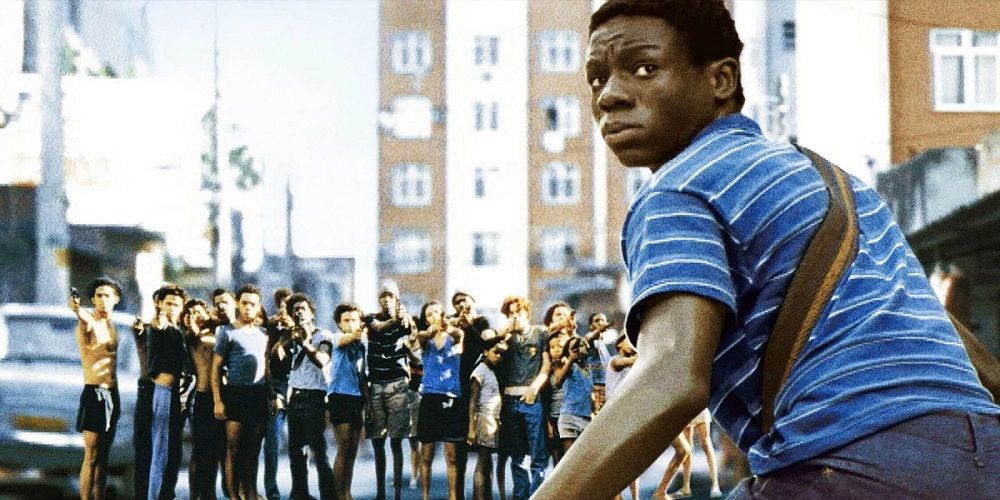
According to the documentary City of God - 10 Years Later, the two novice leading actors in the film, Rodrigues and Firmino, were offered the chance to be paid roughly R$10,000 ($3,000 U.S.) upfront or recoup a percentage of the box-office.
Having little idea of how popular the movie would become, both actors opted for the upfront payment. Had they agreed to accept as little as 1 percent of the box-office, instead, both actors would have been paid 25 times more than what they earned upfront.
6 Buscape's POV
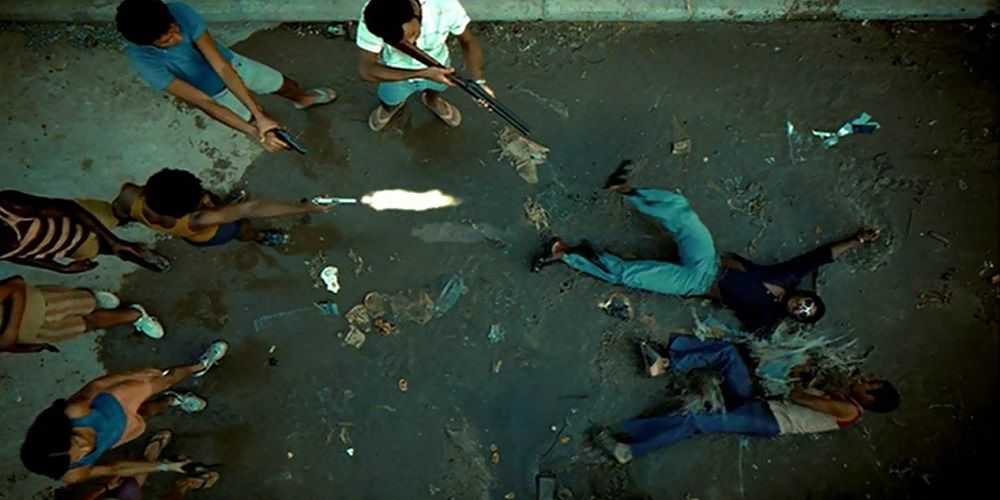
Immediately following Lil Ze's death at the hands of The Runts, a shot is seen through the eyes of Buscape (Rocket). The subjective POV shot was actually filmed by Alexandre Rodrigues, who plays Buscape.
Director of Photography Cesar Charlone insisted that Rodrigues film the shot himself and was adamant about teaching Rodrigues how to operate a camera. When Charlone expressed the importance of Rodrigues filming the shot himself as the character does, Meirelles agreed.
5 Acting Methods
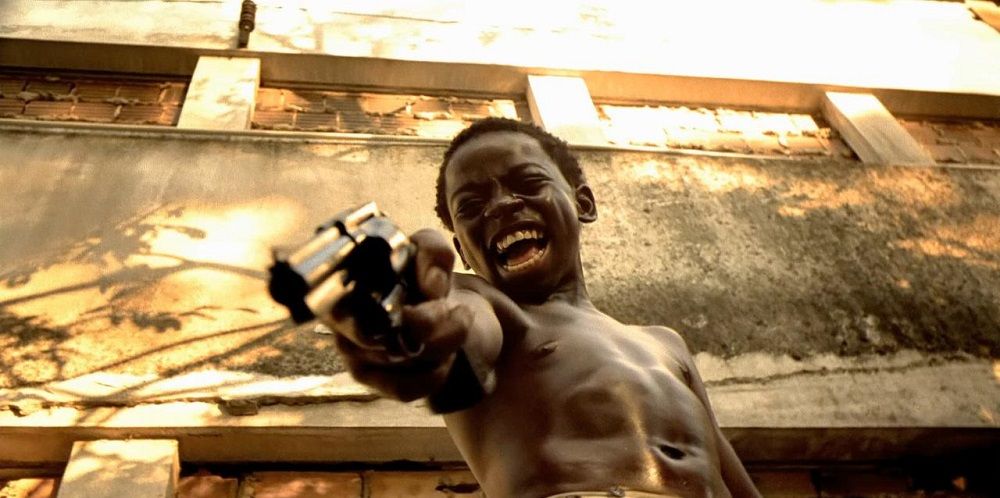
According to the DVD audio commentary, roughly 100 young non-acting Brazilian locals were recruited for a method-acting workshop in which they trained for many months before filming began. They practiced simulating gritty street wars, gun-battles, stick-ups, etc. that resulted in a loose, improvisational set.
To channel the proper dynamic between Dadinho and Marreco, acting coach Fatima Toledo implored actor Renato de Souza (Marreco) to bully Douglas Silva (Dadinho) for more than two weeks. As a result of Marreco slapping Dadinho in the film, Silva's angry and tearful reaction was 100% authentic. Silva was so upset he nearly left the film.
4 Prayer Scene
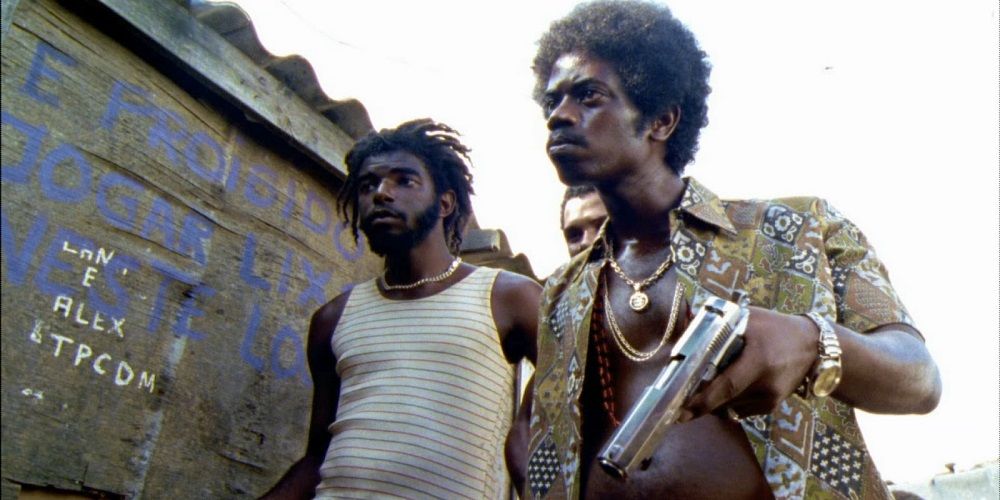
Several of City of God's most memorable moments came from accidental moments of improvisation. For example, the scene in which the gangsters pray prior to battle was not scripted, according to the DVD extras.
Instead, a young local boy cast from the area asked Meirelles if they were going to pray prior to a deadly confrontation with adversaries, as was customary in Rio. Meirelles responded by allowing the boy to lead a prayer ceremony, which made it into the final film.
3 Final Shot Unscripted
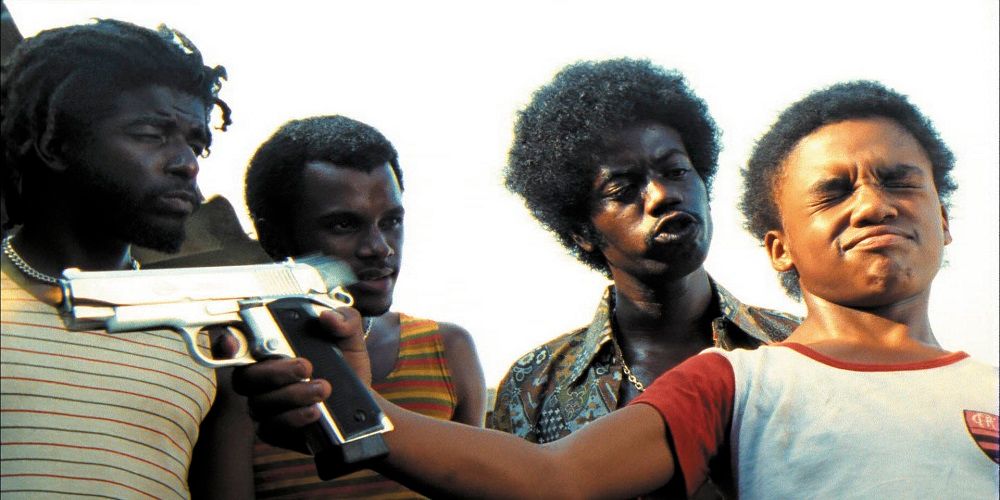
Another memorable moment resulting from unscripted improvisation includes the final shot of the film, in which a little boy races into the street to retrieve his missing slipper.
The image begins with the little boy losing his slipper in the street and running back to pick it up. The happy accident occurred naturally while filming and Meirelles liked it so much he decided to keep in the final cut of the movie. Other improvisational scenes include Rocket's speech about never taking a hot bath and young Buscape's laughing fit after his brother his slapped by his father.
2 Charlie's Angels Homage
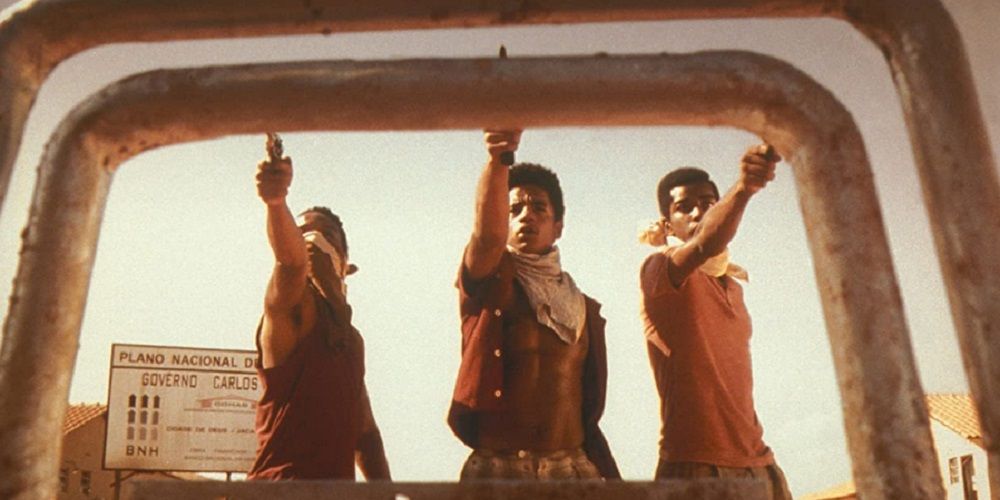
Although City of God is full of intense violence and graphic carnage, Meirelles couldn't help but pay homage to one of the campiest TV shows of all time.
In the DVD audio commentary, Meirelles admits that the shot of Alicate, Cabeleria, and Marreco as seen through the rear of the gas truck is directly lifted from the Charlie's Angels TV series from the 1970s. The image features all three men standing with guns akimbo pointing in different directions.
1 Academy Awards
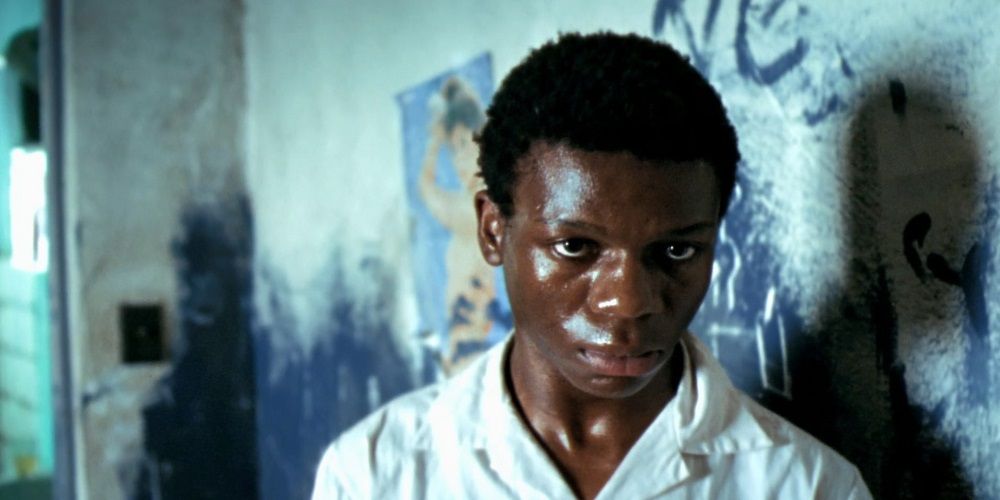
In 2003, City of God was Brazil's official submission for Best Foreign Film at the 75th Academy Awards. While the film failed to land a nomination in that category, Miramax arranged a wide enough release for the movie in the U.S. that it ended up garnering not one, but four total Oscar nods.
The film was nominated for Best Director, Best Adapted Screenplay, Best Cinematography, and Best Editing. Although the film did not win in any category, City of God was the first Brazilian film to earn more than two Oscar nominations.
from ScreenRant - Feed https://ift.tt/2G63G1Y


0 Comments